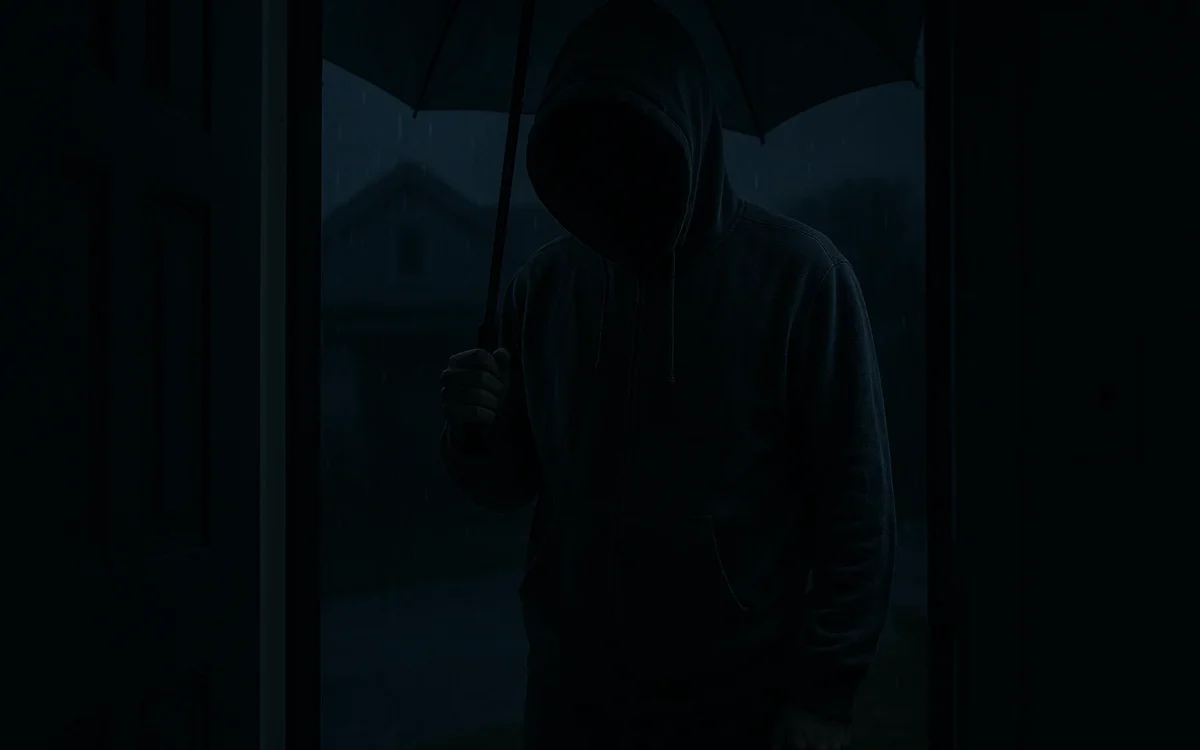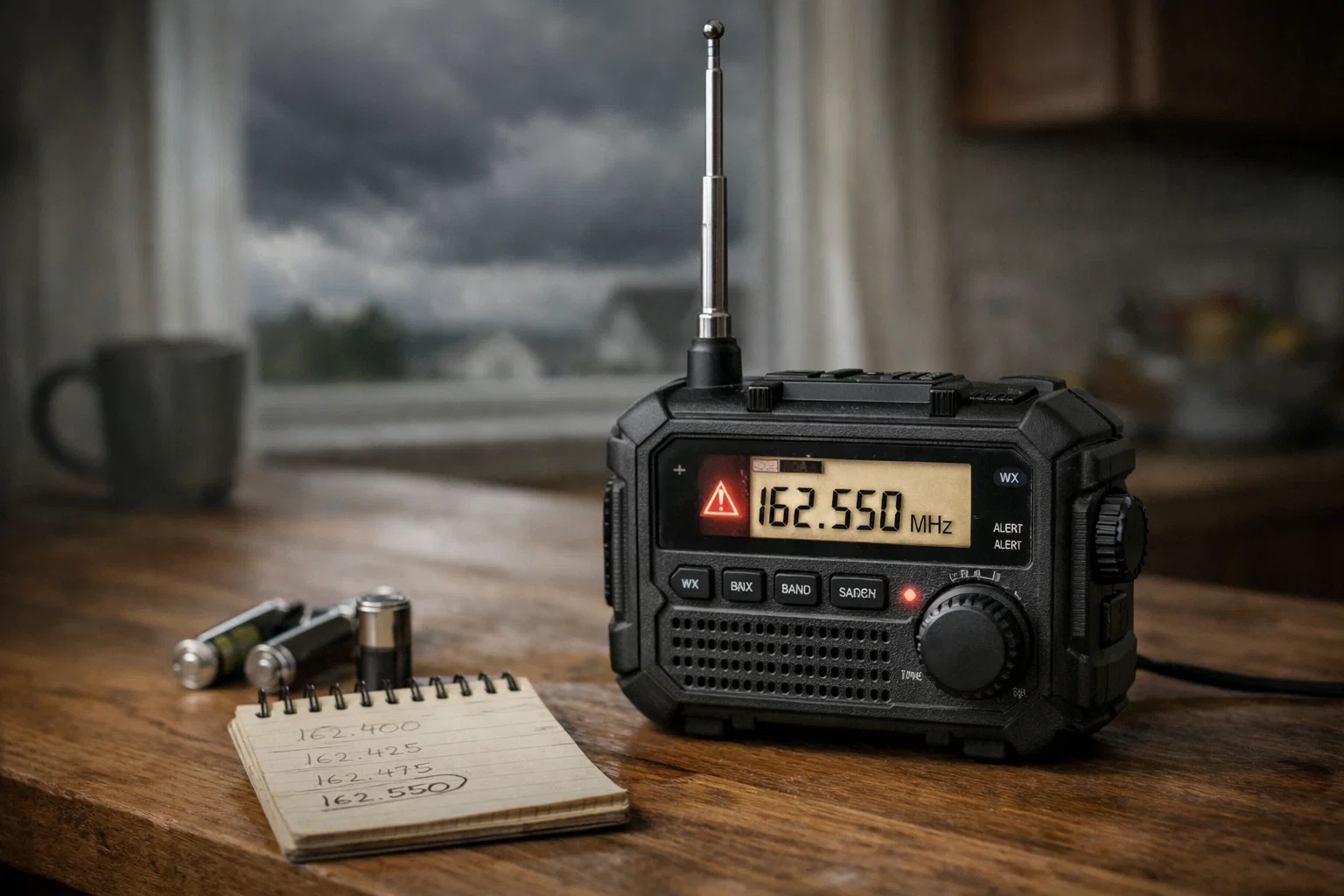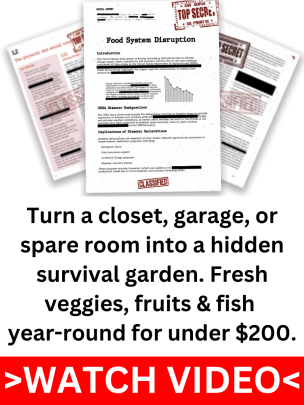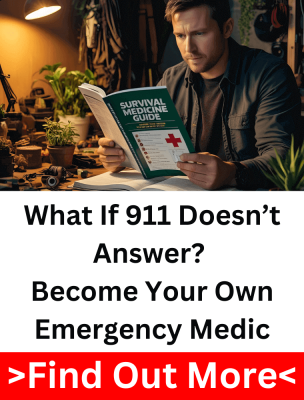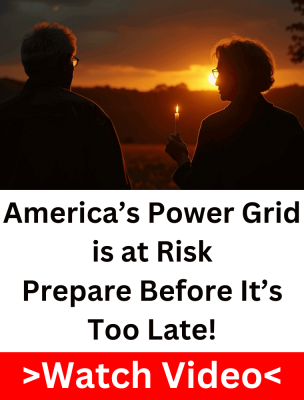A few days after the storm, you’re running on backup power. Gas stations are closed, cell service is barely holding, and folks are starting to panic. Then someone shows up claiming to have fuel, water filters, even spare radios, anything people need. But there’s a catch. No receipts. No real name. Just “cash only” and a story that doesn’t quite add up.
It’s in these moments, when everything’s uncertain, that the worst kind of people start crawling out of the woodwork. Scammers know when to strike, and they thrive on confusion and desperation. For preppers, that makes avoiding scams in a crisis a core survival skill. Because it’s not just about what you’ve stored, it’s about protecting what’s yours when others start looking for a way to take it.
Why Preppers Are a Prime Target
Scammers don’t just rely on desperation, they rely on patterns. And preppers, whether we like it or not, have patterns. We stock up on fuel, water, radios, ammo. We stash cash. We’re usually the ones still standing when things go sideways. That makes us a goldmine for someone looking to run a fast con. When people get desperate, the calm and prepared stand out, and that’s exactly what predators look for.
The truth is, these people do their homework. They know how to sound official. They’ve studied how relief agencies work, what kind of gear preppers carry, and what kinds of stories we’re more likely to believe. They don’t walk up with cartoonish lies, they show up with just enough truth to seem legit. That’s what makes avoiding scams in a crisis so tricky. It’s not just about spotting a scam, it’s about recognizing when someone is using your own preparedness mindset against you.
And here’s the part folks don’t talk about enough: the real danger often comes after the dust settles. Once the initial panic dies down, the scammers know people are tired, distracted, and low on resources. That’s when the fake contractors show up. That’s when the “emergency discounts” start popping up online. And that’s when you’re most likely to let your guard down.
Other Article: How to Train With Your Firearm Without Wasting Ammo
Red Flags You Can’t Afford to Miss
One of the oldest tricks in the book is pretending to be someone official. After a disaster, it’s not uncommon for scammers to show up wearing vests, carrying fake IDs, and claiming to work for FEMA or a utility company. They might say they need to inspect your home or offer assistance in exchange for personal info or payment. Real officials don’t operate that way, if someone shows up without credentials you can verify on the spot, assume it’s a scam and shut it down fast.
Then there’s the classic contractor con. A guy rolls up offering quick repairs, roof patching, tree removal, generator installs. Says he’s working the neighborhood and just needs a deposit. Sounds convincing, until he disappears with your cash. Always check licensing and ask for proof of past work. Even in a crisis, there’s no excuse for doing business blind.
Donation scams hit preppers in a different way. We tend to have big hearts and strong communities. Scammers know that. You’ll see fake online fundraisers, bogus charity drives, even people posing as local families in need. They’ll use social media or text chains to pull you in. When something feels off or too vague, trust your gut. Verified relief groups don’t ask for prepaid cards or crypto payments.
And let’s not forget the gear hustlers. After a disaster, the market floods with sketchy sellers offering fuel, filters, radios, whatever’s in demand. They show up in parking lots, Craigslist ads, even encrypted messaging apps. Some of them are selling knockoffs, others are straight-up thieves flipping stolen goods. It’s a mess. Buying from unknown sources might feel like a shortcut, but it often ends in regret.
Learning how to spot scam artists during disaster conditions isn’t just a nice skill, it’s part of your survival mindset. Because when you’re tired, distracted, and worried about your family, even seasoned preppers can fall for a lie. That’s why avoiding scams in a crisis isn’t just about being cautious, it’s about staying sharp when it counts most.
Other Article: The Survival Uses of Items the Government Doesn’t Want You Stockpiling
Not all scams come knocking. Some slide into your phone or inbox. Crisis-time phishing texts often pretend to be from FEMA, power companies, or aid groups, claiming you need to “verify your identity” or “click here to receive funds.” Others link to fake donation websites or shady vendors selling survival gear. If the message comes out of nowhere and urges you to act fast, slow down. Go directly to the official source’s website instead of clicking any links. In times like these, avoiding scams in a crisis includes guarding your digital front door too.
Your Crisis Scam Shield: Simple Ways to Stay Protected
The best time to outsmart a scammer is before they even show up. Take time now, before the storm, blackout, or flood, to verify which local contractors, aid groups, or utility crews are legit. Call your county office and make a list. Talk to neighbors. Preppers don’t just stock supplies, we build systems. And that includes knowing who’s real when chaos hits.
One simple strategy that works wonders is setting up a family verification phrase. Something only your household knows, short, casual, and easy to remember. If someone shows up claiming they were “sent by your son” or “referred by a neighbor,” you ask for the phrase. If they don’t know it, door stays shut. Same goes for phone calls or texts that seem fishy. A little shared code can go a long way in cutting through the lies.
When it comes to payment, here’s a hard rule: never hand over money in a form you can’t trace. That includes:
- Gift cards
- Wire transfers
- Crypto
- Cash to anyone you don’t know well
Scammers love those options because once they’ve got it, you’ve got nothing. Stick with checks or credit cards when possible, something with a paper trail. If someone insists on a method you’re uncomfortable with, that’s your signal to walk away.
Other Article: What No One Tells You About Prepping With Pets
And finally, build your own local alert system. Could be a group text with trusted neighbors or a simple paper log you all update on a shared bulletin. If someone shady is going door-to-door, let others know. In a blackout, information moves slow, and that’s exactly what scammers count on. But a tight-knit group that shares alerts and keeps eyes open? That’s how you turn avoiding scams in a crisis from a personal goal into a community advantage.
The #1 Rule: Slow Down and Think
Scammers don’t just sell fake goods, they sell panic. They want you flustered, off-balance, and rushing to make a decision. That’s when mistakes happen. It’s why every shady offer comes with urgency baked in: “limited time,” “cash now,” “only a few left.” If they can get you to act before you think, they win. But here’s the truth: in nearly every situation, you have time to breathe before you hand over your cash or your trust.
Take sixty seconds. Step back. Ask a question. Verify a detail. That short pause can be the thing that keeps your food, your gear, or your savings from ending up in a scammer’s hands. That’s what avoiding scams in a crisis really comes down to, keeping your head when others want you to lose it. The slower you move, the faster you see the cracks in their story.
Look Out for Others, It Comes Back Around
In a crisis, you’re not the only one getting targeted. Scammers don’t care who they hit, as long as it pays. That’s why looking out for your neighbors isn’t just about being kind. It’s about staying ahead of the curve. If someone tries a sketchy pitch at your place, odds are they’ve already knocked on the next door, too. A quick heads-up could keep a whole block from getting drained by the same lowlife.
And the truth is, the help you give often circles back. Maybe next time, someone spots a fake contractor before you do. Or warns you about a false aid group making the rounds. When you build a tight-knit network during hard times, you’re not just creating safety, you’re reinforcing it. The stronger the group, the harder it is for anyone to slip through the cracks.
You’ve spent time, money, and energy getting ready for the worst, stocking food, water, tools, maybe even running drills. But all of that can go to waste if you’re not just as prepared for the people who show up when things fall apart. Gear can be stolen. Trust can be twisted. That’s why staying alert, especially when things get chaotic, is just as important as what’s in your stockpile.
Avoiding scams in a crisis isn’t just about spotting lies, it’s about thinking clearly, protecting your resources, and not letting desperation cloud your judgment. You’ve trained for power outages and supply chain failures. Now make sure your mindset is ready for the human threats too. Because real preparedness isn’t just about surviving nature, it’s about outsmarting the ones who try to take advantage of it.

